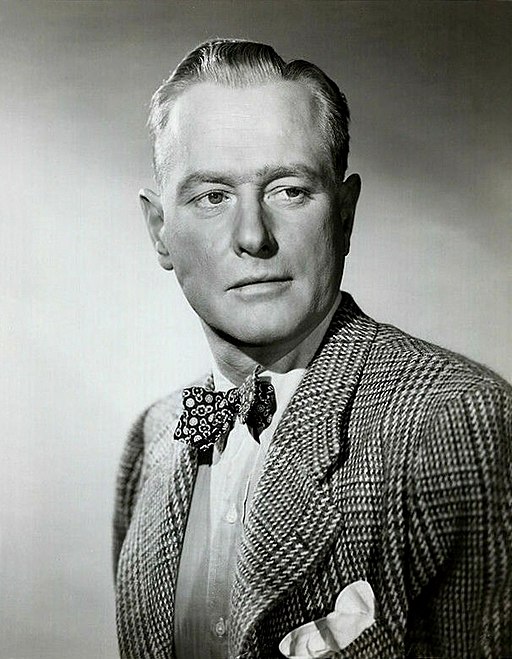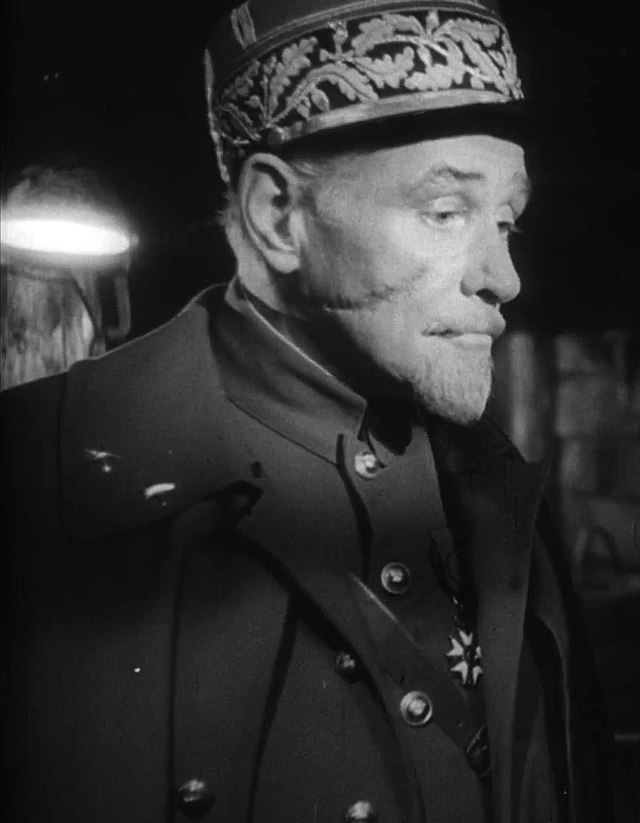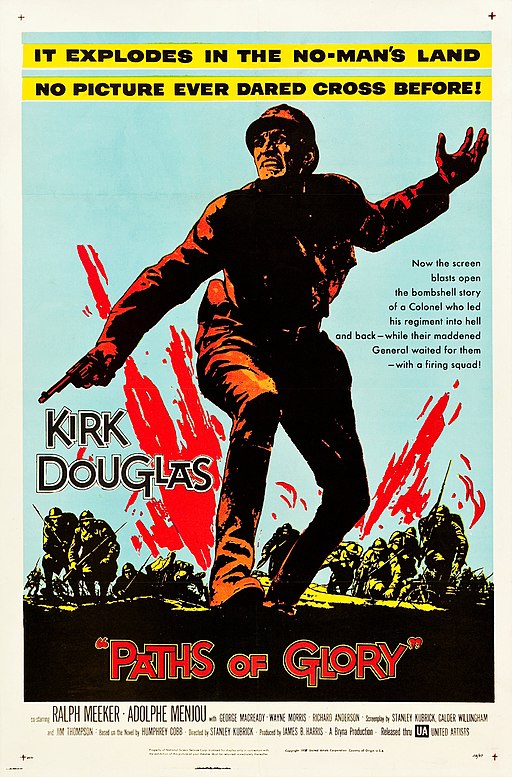George Macready
back| Full Name | George Peabody Macready Jr. |
| Stage Name | George Macready |
| Born | August 29, 1899 |
| Birthplace | Providence, Rhode Island, USA |
| Died | July 2, 1973 |
| Buried | Holy Cross Cemetery, Culver City, California, USA |
| Married to | Elizabeth Dana Patterson (1931-1943) |
| Children | Michael Macready, Marcia Macready, Elizabeth Macready |
| Notable films | Gilda (1946) - Paths of Glory (1957) - Detective Story (1951) - The Big Clock (1948) - Tora! Tora! Tora! (1970) |
George Macready
The Suave Actor
George Macready was a distinguished actor known for his aristocratic demeanor and commanding presence. He transitioned from Broadway to Hollywood in the early 1940s, becoming famous for his roles as sophisticated villains.
Notable films include "Gilda" (1946) and "Paths of Glory" (1957). His distinctive voice and nuanced performances made him a memorable figure in classic cinema. Macready was also an art collector and co-owned a gallery with Vincent Price.
Related
George Macready (1899 – 1973)
Biography, Career and Movies
George Peabody Macready Jr. was born on August 29, 1899, in Providence, Rhode Island. He was a direct descendant of the 19th-century British actor William Charles Macready. Macready attended Brown University, where he majored in English and was a member of the Delta Phi fraternity. His interest in acting was sparked during his college years.
Early Career: After graduating from Brown University in 1921, Macready pursued a career in acting. He began on the stage and became a prominent figure in the New York theater scene. He was known for his commanding presence and his distinctive, aristocratic voice. His early stage work included performances in productions such as "Romeo and Juliet" and "Macbeth."
Hollywood Career: Macready transitioned to Hollywood in the early 1940s, where he quickly established himself as a talented character actor. He often portrayed suave, sophisticated villains, leveraging his distinguished voice and imposing demeanor.
One of his most famous roles was that of the sinister Ballin Mundson in the film noir classic "Gilda" (1946), where he starred alongside Rita Hayworth and Glenn Ford. This role cemented his reputation as a master of portraying elegant but dangerous characters.
Macready also made a significant impact with his performance in Stanley Kubrick's anti-war film "Paths of Glory" (1957), where he played the uncompromising and callous General Paul Mireau. His portrayal added depth to the film's critique of military hierarchy and the futility of war.
Later Career and Television: In addition to his film career, Macready made numerous appearances on television. He guest-starred in many popular TV series of the 1950s and 1960s, including "Perry Mason," "Bonanza," "The Outer Limits," and "Batman." His versatility allowed him to play a wide range of roles across different genres.
Personal Life: George Macready was married to Elizabeth Dana Patterson from 1931 until their divorce in 1943. They had three children: Michael Macready, Marcia Macready, and Elizabeth Macready. Despite his often villainous on-screen persona, Macready was known to be a kind and generous individual in his personal life.
Death and Legacy: George Macready passed away on July 2, 1973, at the age of 73, in Los Angeles, California. He was interred at Holy Cross Cemetery in Culver City, California.
Macready left behind a legacy of memorable performances that continue to be appreciated by fans of classic cinema. His contributions to both stage and screen have made him a respected figure in the history of American acting.
Short Video on George Macready:
Unique Acting Style of George Macready:
George Macready was a distinguished actor whose unique acting style left a lasting impression on both the stage and screen. Here is a detailed analysis of his acting style:
Commanding Presence and Aristocratic Demeanor
Macready possessed a commanding presence that was immediately noticeable. His tall, slender frame and aristocratic bearing lent him an air of authority and sophistication. This physicality made him ideal for roles that required a sense of gravitas and elegance. Whether he was portraying a villain, a military officer, or a nobleman, his presence dominated the screen.
Distinctive Voice
One of Macready's most striking features was his distinctive voice. His deep, resonant tone carried a refined, almost aristocratic quality. This voice, combined with his precise diction and measured delivery, contributed significantly to his on-screen persona. It allowed him to convey menace, intelligence, and complexity with ease. His voice was particularly effective in roles that required a sense of cold, calculated villainy.
Mastery of Villainous Roles
Macready excelled in playing sophisticated villains. He often portrayed characters who were suave, intelligent, and morally ambiguous. His portrayal of Ballin Mundson in "Gilda" (1946) is a prime example. In this role, Macready exuded a calm, controlled menace, using his voice and demeanor to create a chillingly effective antagonist. His ability to infuse his villains with a sense of charm and sophistication made them more compelling and memorable.
Nuanced Performances
Despite often being cast in similar types of roles, Macready brought a remarkable degree of nuance to his performances. He had an ability to convey inner conflict and complexity, adding depth to his characters. For instance, in "Paths of Glory" (1957), his portrayal of General Paul Mireau revealed a man driven by ambition and rigid adherence to duty, yet not entirely devoid of human vulnerability. Macready's nuanced performance helped humanize the character, making his actions more understandable, if not justifiable.
Expressive Eyes and Subtle Gestures
Macready's expressive eyes were another key aspect of his acting style. He could convey a wide range of emotions through subtle shifts in his gaze, from cold calculation to simmering anger. His use of subtle gestures further enhanced his performances. Rather than relying on broad, theatrical movements, Macready preferred a more restrained approach, using small, deliberate gestures to communicate his characters' intentions and emotions.
Versatility Across Genres
While Macready was best known for his villainous roles, he demonstrated versatility across different genres. He appeared in war films, historical dramas, film noir, science fiction, and even horror. Regardless of the genre, Macready adapted his acting style to suit the tone and demands of the film, showcasing his range as an actor.
Stage Training and Theatrical Influence
Macready's stage training and experience in theater undoubtedly influenced his acting style. His performances were marked by a sense of discipline and precision, traits often honed on the stage. This theatrical background also contributed to his strong vocal projection and clarity, which were hallmarks of his film performances.
Conclusion
George Macready's acting style was characterized by his commanding presence, distinctive voice, and ability to infuse his characters with sophistication and depth. His nuanced performances, marked by expressive eyes and subtle gestures, made him a compelling and memorable actor. While he often played villains, his versatility and theatrical background allowed him to excel in a variety of roles across different genres. Macready's contributions to film and theater have left a lasting legacy, and his unique style continues to be appreciated by audiences and critics alike.
Awards and Recognition:
George Macready, despite his prolific acting career, did not receive any major awards or nominations. He was highly regarded for his performances, especially in villainous roles, and his work in films like "Gilda" and "Paths of Glory" is still celebrated today. Macready's contributions to film and television were significant, but he was not formally recognized with industry awards during his lifetime.
Film Lines and Personal Quote from George Macready:
· From "Gilda" (1946) as Ballin Mundson:
"Hate is a very exciting emotion. Haven't you noticed? Very exciting."
· From "Paths of Glory" (1957) as General Paul Mireau:
"If those little sweethearts won't face German bullets, they'll face French ones!"
· Personal Philosophy:
"In every actor's career, there is always a character that embodies all of their worst qualities. For me, it was Ballin Mundson in 'Gilda'."
Movies with George Macready:
Commandos Strike at Dawn (1942): A Norwegian fisherman organizes a resistance against the Nazis during World War II.
Sahara (1943): An American tank crew joins forces with British and French soldiers to defend a waterhole from German troops in the North African desert.
The Soul of a Monster (1944): A critically ill man is cured by a mysterious woman, but he returns with a malevolent personality.
Wilson (1944): A biographical film about President Woodrow Wilson and his role during World War I and the formation of the League of Nations.
Cry of the Werewolf (1944): A young woman learns she is a werewolf and struggles with her transformation.
A Song to Remember (1945): A fictionalized biography of Polish composer Frédéric Chopin.
Counter-Attack (1945): Two Soviet soldiers trapped behind enemy lines try to survive and communicate with their comrades.
Gilda (1946): A love triangle unfolds between a casino owner, his alluring wife, and his right-hand man.
The Walls Came Tumbling Down (1946): A reporter investigates the murder of an art dealer and uncovers a religious artifact.
My Reputation (1946): A widow faces social ostracism and romantic complications.
The Man Who Dared (1946): A man falsely accused of murder seeks justice.
Dead Reckoning (1947): A former paratrooper investigates the mysterious death of his war buddy.
The Loves of Carmen (1947): The story of the passionate and tragic romance between Carmen and Don José.
Knock on Any Door (1947): A lawyer defends a troubled youth accused of murder.
The Big Clock (1948): A crime magazine editor becomes embroiled in a murder investigation involving his boss.
Joan of Arc (1948): A dramatization of the life and trial of Joan of Arc.
The Gallant Blade (1948): A swashbuckling adventure featuring swordsmen in 17th-century France.
Beyond the Forest (1949): A dissatisfied housewife's reckless affair leads to tragedy.
Detective Story (1951): A day in the life of a detective handling various cases while facing personal challenges.
The Brigand (1952): A story of a nobleman turned outlaw who fights against tyranny in Spain.
My Six Convicts (1952): A psychologist works with six convicts in a penitentiary to reform them.
Man in the Attic (1953): A lodger in a boarding house is suspected of being Jack the Ripper.
The Great Jesse James Raid (1953): The infamous outlaw Jesse James plans a final heist.
The Shanghai Story (1954): Westerners trapped in Shanghai during the Chinese Civil War try to escape.
Black Widow (1954): A young actress's death leads to a murder investigation in the theater world.
A Lawless Street (1955): A marshal tries to clean up a lawless town while dealing with personal conflicts.
Top Gun (1955): A gunfighter returns to his hometown to help protect it from outlaws.
Tight Spot (1956): A woman in prison is given a chance for freedom if she testifies against a mob boss.
Paths of Glory (1957): A French army colonel defends his soldiers accused of cowardice during World War I.
Queen of Outer Space (1958): Astronauts land on Venus and encounter an all-female civilization.
The Alligator People (1959): A newlywed searches for her missing husband and discovers he has become part alligator.
13 Ghosts (1960): A family inherits a haunted house with ghosts visible only through special glasses.
Seven Days in May (1964): A military coup is planned in the United States to overthrow the president.
The Greatest Story Ever Told (1966): A dramatization of the life of Jesus Christ.
Tora! Tora! Tora! (1970): A historical drama depicting the events leading up to the Japanese attack on Pearl Harbor.



